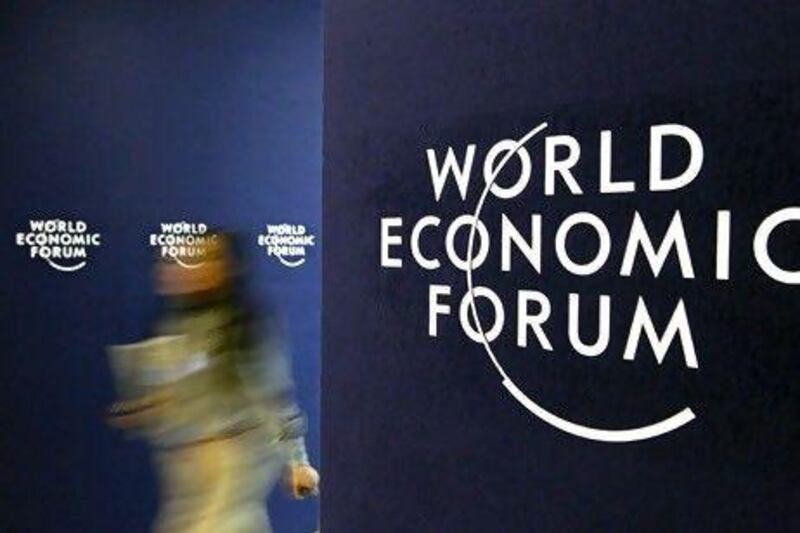The euro-zone crisis threatens to derail the global economy, and especially the power of China and other Asian countries to pull the rest of the world out of its downturn.
That was the sombre message from some of the world's leading financial and economic policymakers at the final big set-piece debate on the global economic outlook from the World Economic Forum in Davos, Switzerland.
Perhaps the most alarming note was struck by David Tsang, the chief executive of Hong Kong. "Asia has 7 per cent growth, China has 8 per cent. It looks robust and rosy.
In Hong Kong we have balanced books and full employment. It all seems very nice, but I can tell you I have never been so scared," he said.
Mr Tsang said that, unlike the way Asian leaders dealt with the 1990s financial crisis in the region, European leaders had not come together to solve their own crisis. "We need decisive action by governments."
The danger posed by Europe to the world economy was echoed by other leaders. "No one is immune. This is not just a euro-zone crisis. It could have spill over effects in the rest of the world," said Christine Lagarde, the managing director of the IMF.
Other economic leaders agreed.
"We want a firewall in Europe," said Motohisa Furukawa, the Japanese minister for economic and fiscal policy." If not, it would have serious effects on the global economy. My concern is that the crisis could have an impact outside Europe, especially in Asia and Japan."
There was a consensus that the past four and a half years of economic and financial turmoil in the West had led to a permanent shift in the global balance of power.
"The world is never going back to the way it was," said Robert Zoellick, the president of the World Bank.
"At international gatherings, I have noticed a general disdain among Asian leaders towards their western counterparts. This will persist for years to come."
Ms Lagarde said one element of a solution to the euro zone's problems should be greater resources for the IMF to back European countries under sovereign debt pressure.
She appealed for more funds from the emerging market countries to bolster the IMF's resources. "I'm here with my little bag to collect some money," Ms Lagarde said as she held up her handbag to the audience.
But she also pointed out that emerging markets would have little incentive to increase their contributions if the funds were to be given to support uncompetitive indebted countries in Europe.
"Why should the well-managed countries of the world help a zone that's not able to help itself, that is a fair question," she said. "If the fund is big enough, it will never get used, and even if it does get used, it always gets paid back."
Others were more sceptical.
"I agree the euro zone needs more resources in the firewall, but the IMF has to demonstrate it will be effective," said George Osborne, the British chancellor of the exchequer, or finance minister. "The fund was never intended to help countries that had a single currency, like the euro zone."
There were no representatives of the euro-zone countries on the panel.
"I find myself in the strange position of being the closest thing to a spokesman for the euro zone," Mr Osborne said. "It's the only time in my life I'll speak for them."
He added however that the euro zone had already achieved a lot by "pooling national resources to help others and bringing in austerity measures that usually get you kicked out of office".
Ali Babacan, the Turkish deputy prime minister for finance and the economy, said his country had faced its own financial problems in 2009, and had adopted different measures from the Europeans.
"We adopted a very prudent, tight fiscal policy. We didn't think fiscal stimulus would work, and it hasn't worked in Europe."
Meanwhile, Ibrahim Al Assaf, Saudi Arabia's Finance Minister, said the world's top oil exporter may be willing to raise its contribution to the IMF, aided by an "extremely solid" fiscal position.
"We have been there for the IMF for a long time; over 35 years we have been providing loans to the IMF. Also we have a large shareholding," Mr Al Assaf said in a Bloomberg Television interview in Davos, Switzerland.
"We like to maintain that or increase it."





